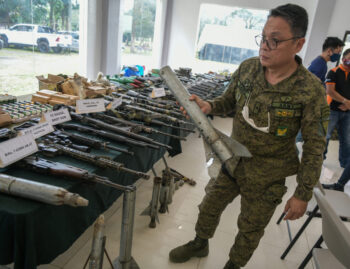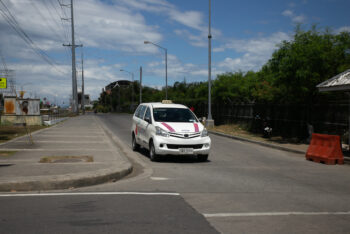CAGAYAN DE ORO CITY (MindaNews/06 Jan.) — We really should get serious about good governance and learn how to behave like mature citizens of a democracy.
Mature citizens of a democracy actively participate in government affairs and see to the smooth functioning of their community’s governing processes.
They do so because democracy is meaningless unless it’s a “government of the people, by the people, and for the people.”
An involved citizenry is essential for democracy and for good governance. First of all, it is citizens that establish government, not the officials.
Citizens elect the officials. Whatever plans or programs the officials formulate are validated or approved by the citizens; at least they’re supposed to.
The taxes citizens pay makes it possible for government to operate and to carry on.
Depending on the government’s performance, citizens decide intervals whether to retain or replace it.
Get Involved, Show up for Meetings
Thus unless citizens take their role, duties, and responsibilities seriously, it is futile to speak of good governance. As the Gising Barangay Movement puts it, “Government is everybody’s business; if you’re not involved, you can’t expect good governance!”
Getting involved need not be so demanding or time-consuming—the usual excuse people make when asked why they shirk citizen duties. In fact, adopting a few simple habits will do; simple but essential for government to operate efficiently.
One simple habit is to be present in community meetings and speak up. Very few do this and most of those who attend are the wrong sort of citizens. They show up for the refreshments or favors handed out by officials on such occasions. But they offer no ideas to solve community problems. They contribute nothing that improves or enhances the common good. They are passive, apathetic citizens.
On the other hand, those who do have something to share or contribute are nowhere—the professionals in the community: lawyers and doctors, engineers and architects, bankers and CPAs, pastors and bishops, teachers and nuns, business and technical people. With very few exceptions, they’re non-performing citizens.
They’re no help in resolving public issues, explaining or clarifying them, taking a stand or guiding others on what position to take.
For all intents and purposes, they might as well not be members of the community. They don’t share their knowledge, expertise, or insight. So the community is unable to form a consensus on what to do about such issues. They leave the community at a loss, a passive asset to the nation.
At the least, they should initiate local discussions, show up for meetings, share what they know, and take a stand.
Do your Homework
When public issues arise that ought to be resolved by the community, a citizen should do a little research, share the knowledge with neighbors and colleagues, ot draft a resolution for the Barangay Assembly to pass. It will guide the higher-ups to make decisions.
Why wait for surveys or referenda? Public issues should be resolved by the public, not by media, not by the pollsters, nor by just a few officials.
Take a Stand
In Mindanao, no community or barangay has bothered to take up the issue of whether it is fair for 75% of the wealth of the community should be allocated to the MILF. Why give it to this group only? Why not give it to all Mindanaons? And why does the government talk only to an armed group that relies on violence for leverage?
Then there are those communist insurgents. Why are civilian officials not involved in solving the problem of security for barangays? There’s too much reliance on government, police or the armed forces. The community has the greatest stake but it is sidelined.
What do barangay assemblies have to say about their own security? They are the first to be victimized when raiders disturb the peace and cause destruction or loss of lives. Are their officials and neighbors in connivance with the enemy? Serious questions, these.
What should the community and its neighborhoods do when threats arise? Why involve them in natural disasters only, but not in risks to their lives caused by insurgency? It’s their security and welfare that’s threatened. Are they ever consulted on their proper role?
What to do with Disloyalty
How about officials who cooperate with or support insurgents? What should the constituents do about them? Should they be charged or reported to higher authority? Disloyalty to the Republic is treason. Failure to protect citizens, especially law-abiding ones, is dereliction of duty.
Officials who excuse themselves for fear of being harmed have no business staying in office and getting paid. They’re supposed to champion the citizens, to defend and protect them. (MindaViews is the opinion section of MindaNews. Manny Valdehuesa writes from Cagayan de Oro and is the president and national convenor of Gising Barangay Movement Inc. He can be reached at valdehuesa@gmail.com.)







